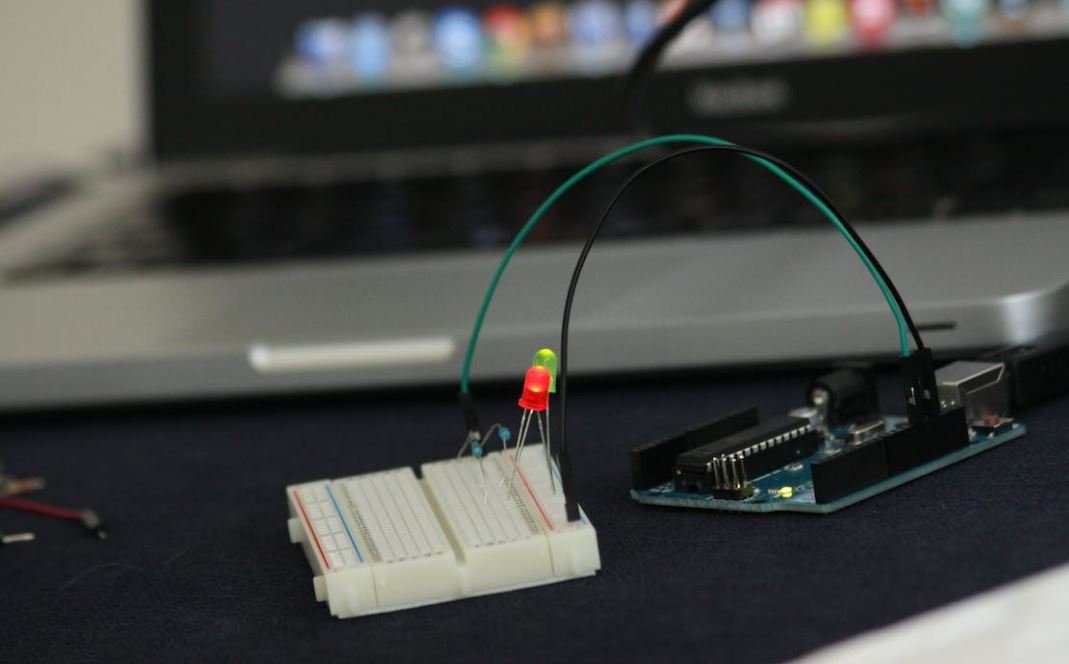Generative AI in Video Games
In recent years, the use of generative artificial intelligence (AI) in video games has significantly enhanced the gaming experience. Generative AI refers to the technology that allows computers to autonomously create and design content, such as characters, landscapes, and even entire game worlds. By leveraging the power of AI algorithms, game developers are able to create more dynamic and immersive gaming environments. This article explores the impact of generative AI in video games and its potential for future innovations in the industry.
Key Takeaways
- Generative AI enhances the gaming experience by autonomously creating content.
- The technology allows for more dynamic and immersive gaming environments.
- Generative AI has the potential to revolutionize game design and development.
Generative AI algorithms have paved the way for new possibilities in video game design. Traditionally, game developers had to manually create every element of a game, from the characters to the landscapes. This process was time-consuming and limited in terms of creativity and variety. However, with generative AI, developers can now create procedural systems that generate content on the fly, resulting in an ever-changing and unlimited gaming experience.
**Generative AI** introduces an element of **randomness** and **variability** into video games, making each playthrough unique. It allows game worlds to be generated procedurally, meaning that the layout, textures, and even quests can be created dynamically. This not only provides more replay value but also diversifies the player’s experience, keeping them engaged and interested.
Moreover, generative AI can generate **non-player characters (NPCs)** with unique personalities and behaviors. These NPCs can adapt and respond to the player’s actions, creating a more immersive and realistic game environment. Developers can also use generative AI to design **artificial intelligence (AI)** opponents that learn and improve over time, challenging players in more intelligent and strategic ways.
The Impact of Generative AI in Video Games
Generative AI has had a profound impact on the video game industry. With the ability to quickly generate content, developers can create massive and detailed game worlds without spending excessive time on manual creation. This has led to the rise of large-scale open-world games, where players can explore vast landscapes and discover new content at every turn.
*Generative AI empowers developers to be more experimental and innovative, as they can rapidly prototype and iterate on different ideas. It provides a level of flexibility that was previously unattainable, enabling developers to push boundaries and create unique gameplay experiences.*
Table 1: Comparison of Traditional vs. Generative AI Game Development
| Traditional | Generative AI | |
|---|---|---|
| Content Creation | Manual and time-consuming | Autonomous and efficient |
| Game World | Fixed and static | Dynamic and procedurally generated |
| Creativity | Restricted by time and resources | Enhanced by endless possibilities |
Furthermore, generative AI opens up avenues for player-driven storytelling. Game developers can create systems that enable players to have a direct impact on the game’s narrative. As players make choices, the AI can adapt and generate outcomes accordingly, allowing for personalized and unique storylines. This adds a layer of depth and engagement to the gaming experience, as players feel a sense of agency and ownership over the story.
*Generative AI has the potential to revolutionize the way games are designed and developed. With continued advancements in AI algorithms, we can expect more sophisticated generative systems that further push the boundaries of creativity and realism in video games.*
Future Innovations in Generative AI
The future of generative AI in video games holds immense possibilities. Developers are continually exploring ways to leverage AI to create more immersive and realistic game experiences. One area of focus is the use of **machine learning** techniques to teach AI systems how to generate content that aligns with player preferences and behavior.
Some potential future innovations in generative AI for video games include:
- **Dynamic and adaptive game worlds**: AI systems that generate and modify game worlds in real-time based on player actions.
- **Emotionally intelligent NPCs**: AI-driven characters that can express and respond to a wide range of emotions, providing a more immersive gaming experience.
- **Intelligent quest generation**: AI algorithms that can generate quests and missions that adapt to the player’s abilities and preferences.
Table 2: Examples of Generative AI Innovations in Video Games
| Innovation | Game |
|---|---|
| Dynamic and adaptive game worlds | The Elder Scrolls V: Skyrim |
| Emotionally intelligent NPCs | The Witcher 3: Wild Hunt |
| Intelligent quest generation | No Man’s Sky |
As generative AI continues to evolve, it is not only limited to content creation within games but also extends to other aspects of game development, such as level design, art, and sound. AI-driven systems can assist developers in generating high-quality assets, reducing production time, and enabling more efficient workflows.
*The future of generative AI in video games is an exciting prospect, promising even more immersive and dynamic gaming experiences for players worldwide.*
Conclusion
Generative AI has transformed the landscape of video game development, enabling developers to create more engaging and diverse gaming experiences. From procedurally generated content to adaptive NPCs, AI-powered systems enhance the overall immersion and replay value of games. As technology advances, we can anticipate further innovations in generative AI that will continue to push the boundaries of game design and revolutionize the way players interact with virtual worlds.

Common Misconceptions
1. Generative AI is capable of creating entire video games on its own
One of the most common misconceptions about generative AI in video games is that it can fully create games on its own. While generative AI can assist in the game development process, it cannot replace human creativity and expertise.
- Generative AI can generate certain aspects of a game, such as random landscapes or character designs.
- Human developers are still needed to design and program the gameplay mechanics and overall structure of the game.
- Generative AI can be used as a tool to enhance and streamline the game development process, but it cannot replace the role of game developers.
2. Generative AI in video games always results in unpredictable and random gameplay
Contrary to popular belief, the use of generative AI in video games does not always lead to unpredictable or random gameplay. While generative AI can introduce elements of randomness, it can also be programmed to follow specific rules and constraints.
- Generative AI can be trained or programmed to generate specific types of content, such as realistic enemy behaviors or dynamic level design.
- Developers can control and shape the output of the generative AI to ensure desired gameplay experiences.
- Generative AI can offer a balance between randomness and predictability, allowing for interesting and unique gameplay while still adhering to the game’s design goals.
3. Generative AI is replacing human game developers
Another misconception is that generative AI is gradually replacing human game developers altogether. While AI technology is advancing rapidly, fully autonomous AI game development is still far from reality.
- Generative AI can automate certain tasks in game development, such as level design or procedural content generation.
- Human developers play a crucial role in overseeing, refining, and implementing the output of the generative AI.
- The collaboration between generative AI and human developers can lead to more efficient and innovative game development processes.
4. Generative AI eliminates the need for playtesting
Some people believe that with the use of generative AI, extensive playtesting becomes unnecessary. However, playtesting remains an essential part of the game development process, even with generative AI technology.
- Playtesting helps to identify how players interact with the game, uncovering potential issues and areas for improvement.
- Generative AI can create diverse game elements, but it’s the players who determine the actual user experience and enjoyment.
- Playtesting ensures that the game remains engaging, balanced, and enjoyable for the target audience.
5. Generative AI will lead to a decrease in game quality and originality
There is a misconception that using generative AI in video games will result in a decline in overall game quality and creativity. On the contrary, generative AI can actually facilitate innovation and enhance the gaming experience.
- Generative AI can provide new and unexpected ideas to game developers, sparking creativity and offering fresh perspectives.
- By automating repetitive tasks, developers can focus more on refining the gameplay mechanics and storytelling, resulting in higher-quality games.
- Generative AI can help break away from formulaic game design patterns, leading to more original and unique gaming experiences.

The Rise of Generative AI in Video Games
As technology continues to advance, so does the potential for generative artificial intelligence (AI) in video games. This cutting-edge technology has revolutionized game development, providing dynamic and immersive experiences for players. The tables below highlight various aspects of generative AI in video games, showcasing its impact from different perspectives.
Influence of Generative AI on Narrative
Generative AI has allowed video game developers to create more intricate and personalized narratives. By analyzing vast amounts of player data and preferences, the AI can tailor the story to suit individual players, ensuring a unique experience for each player.
Impact of Generative AI on Graphics
Generative AI plays a crucial role in enhancing video game graphics. By automatically generating realistic textures, lighting effects, and detailed environments, AI-powered graphics create visually stunning and immersive worlds for players to explore.
Integration of Generative AI in Character Development
Generative AI has transformed character development in video games. With the ability to generate lifelike characters, AI-driven systems can create distinct personalities, behaviors, and even dialogue options. This empowers players to engage with characters that feel more human and responsive.
Role of Generative AI in Game Balancing
Generative AI has been instrumental in optimizing game balance. By analyzing player feedback and behavior, AI algorithms can fine-tune game mechanics, adjust difficulty levels, and create a more enjoyable and challenging experience for players.
Generative AI’s Contribution to Procedural Generation
Procedural generation, a technique often employed in open-world games, benefits greatly from generative AI. With AI algorithms intelligently generating vast landscapes, cities, and even quests, players can explore endless worlds with unique and unpredictable content.
Enhanced Immersion through Generative AI in Audio
Generative AI has revolutionized audio design in video games. Realistic soundscapes and dynamic audio effects are generated on the fly, adapting to player actions and creating a deeply immersive experience. Players can now feel fully immersed in the virtual environment.
Generative AI for Natural Language Processing
Generative AI enables advanced natural language processing in video games. This technology allows players to interact with in-game characters through voice commands or text inputs, promoting seamless communication and enhancing the overall gameplay experience.
Generative AI’s Impact on Multiplayer Environments
Generative AI has revolutionized multiplayer experiences in video games. By analyzing player behaviors, the AI can predict and adapt to their actions, creating more challenging and intelligent opponents. This leads to more engaging and competitive multiplayer matches.
Generative AI for Dynamic Level Design
Generative AI has enabled the development of dynamic level design. Through AI algorithms, video games can now generate levels that adapt to player performance, ensuring constant engagement and providing players with new challenges based on their abilities.
The Future of Generative AI in Video Games
Generative AI has opened up a world of possibilities in video game development. By constantly evolving and improving, this technology promises to redefine the gaming industry. Embracing generative AI allows for more personalized experiences, dynamic environments, and enhanced immersion, ensuring an exciting future for both developers and players alike.
Frequently Asked Questions
What is generative AI?
Generative AI refers to the use of artificial intelligence techniques to create original and unique content, such as images, music, or text, using algorithms that learn and simulate human-like creativity.
How does generative AI technology enhance video games?
Generative AI can enhance video games by creating dynamic and immersive environments, generating realistic in-game characters and personalities, developing unique storylines and quests, and even creating procedurally generated levels or worlds for players to explore.
Can generative AI be used to create entire video games?
Yes, generative AI can be used to create entire video games. By leveraging algorithms and machine learning techniques, developers can use generative AI to automatically generate game mechanics, art assets, and even the game’s narrative and dialogue.
What are the benefits of using generative AI in video games?
Using generative AI in video games can result in more dynamic and immersive experiences for players, as it allows for the creation of endless variations of content. It can also save development time and resources by automating certain aspects of game creation.
Are there any limitations to using generative AI in video games?
While generative AI can offer many advantages, it also has its limitations. One limitation is the potential for generated content to lack creativity or quality, as it relies on the algorithms and data it was trained on. Additionally, generative AI may require significant computational resources and expertise to implement effectively.
Can generative AI in video games adapt to player behavior?
Yes, generative AI in video games can adapt to player behavior. By analyzing player actions and preferences, the AI algorithms can dynamically adjust the game’s content, difficulty level, or even create personalized experiences based on individual player characteristics.
Does generative AI replace human game developers?
No, generative AI does not replace human game developers. Instead, it can assist and augment human creativity by automating certain aspects of game development, allowing developers to focus on more high-level design, storytelling, and gameplay elements.
Are there any ethical considerations associated with generative AI in video games?
Yes, there are ethical considerations associated with generative AI in video games. These include concerns about unintentional biases or offensive content generated by the AI, potential job displacement for human developers, and privacy implications if player data is used to train the AI models.
What are some popular video games that use generative AI?
Some popular video games that utilize generative AI include No Man’s Sky, which generates an entire universe of planets and creatures, and Minecraft, which procedurally generates unique landscapes and structures. There are also smaller indie games, like Baba Is You, that employ generative AI to dynamically generate puzzles and challenges.
What is the future of generative AI in video games?
The future of generative AI in video games holds immense potential. As AI technology advances, we can expect even more realistic and immersive game experiences, with AI-generated content seamlessly blending with human-designed elements. The integration of generative AI may also lead to increasingly personalized and adaptive gameplay experiences.




